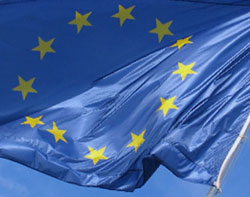Three key European parliamentary committees have voted against adopting the Anti-Counterfeiting Trade Agreement (Acta).
The agreement is aimed at setting an international standard for tackling large-scale infringements of intellectual property rights, but critics argue it will lead to censorship of the internet.

Civil liberties and rights groups have welcomed the recommendation by the three committees to reject Acta.
Acta does not comply with the EU Charter of Fundamental Rights and the International Trade committee should reject it, said the Civil Liberties committee (LIBE).
All deals concluded by the EU must be compatible with its Treaties and Acta does not ensure properly the respect for private life and the protection of sensitive personal information, the committee said.
The Legal Affairs (JURI) and Industry (ITRE) committees also recommended the rejection of Acta.
Rapporteurs for LIBE and ITRE had previously recommended Acta's rejection, in line with the view of MEP David Martin, who is steering Acta through the International Trade Committee (INTA). The MEP responsible for Acta in JURI committee had previously said Acta did not interfere with EU law, but the committee still voted to reject the agreement.
LIBE rapporteur Dimitrios Droutsas said: "The deeply flawed way Acta was negotiated and agreed upon, its grave ambiguity and the uncertain effect on fundamental rights many of its provisions would cause on national legislation, makes it a paradigm of bad lawmaking."
While LIBE fully acknowledges and respects the need for artists to be compensated and the challenges technology poses, he said Europe must not accept or allow the erosion of basic fundamental rights for the sake of expediency.
"What we need is a real public debate, involving all experts, organisations and individuals in order to achieve a modern social pact, a modern regime of protecting intellectual property rights. Acta is not, and was not, conceived to be this," said Droutsas.
The committee criticised the ambiguity of Acta and said adequate transparency had not been achieved throughout the negotiations on the agreement.
The committee said internet providers should not police the internet, and urged the European Commission (EC) and EU countries to ensure their role is legally clear.
LIBE said Acta targets only large-scale infringement of intellectual property rights, allowing for signatory states to exempt non-commercial use from its provisions on criminal enforcement procedures.
The committee agreed Europe needs an international agreement to step up the fight against counterfeit products, and that counterfeiting and piracy are serious phenomena in the information society.
But it said any EU strategy to combat them should not be focused only on repression, but also on their causes, and must respect fully fundamental rights in Europe.
All committee opinions will now be sent to the International Trade committee (INTA), which is expected to vote on Acta on 21 June. The final plenary vote by the European Parliament, which is expected to be heavily influenced by INTA's recommendation, is scheduled for July.
To date, 22 European member states have signed the treaty, including the UK, but it cannot be enacted before it is ratified by the European Parliament.
Several European countries have distanced themselves from the agreement, such as Germany and Poland, where large protests have taken place.
Lawmakers in the Netherlands have also expressed concern that the treaty would breach the country's constitution.
Non-European countries that have signed the treaty include the US, Australia, Canada, Japan and South Korea.





